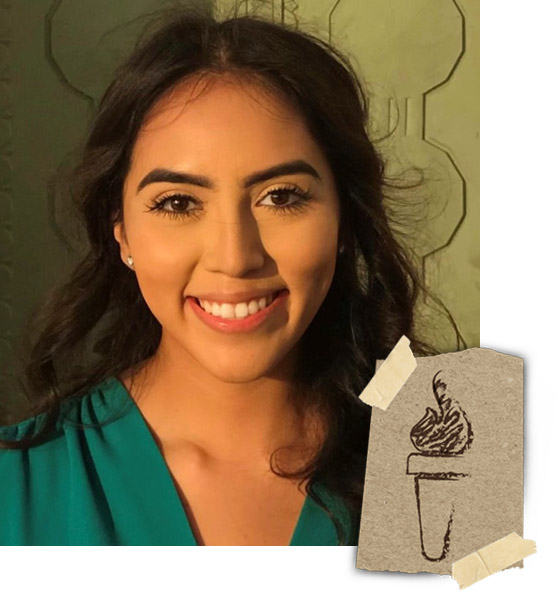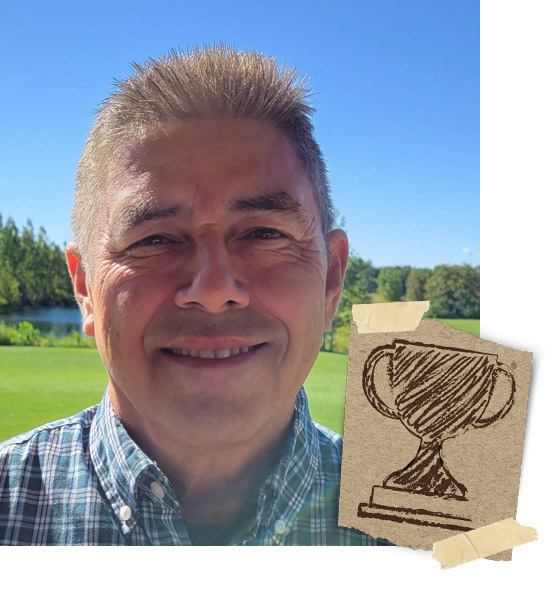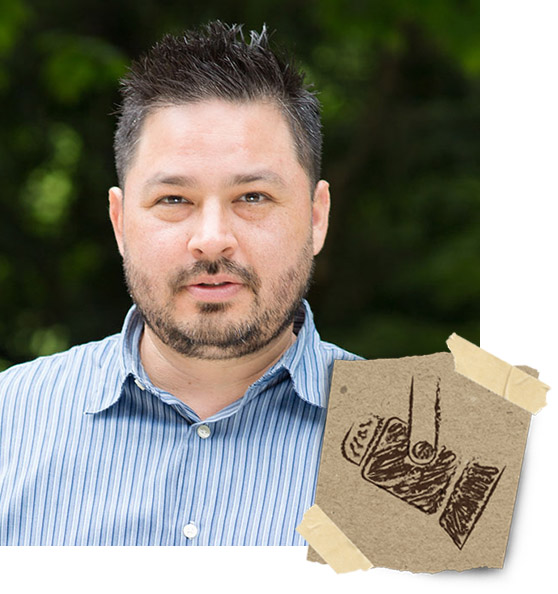Diversity Torch: Brenda Pilar-Ayala
September 20, 2021 - Liz Schondelmayer
 Brenda Pilar-Ayala is a senior majoring in Psychology and Political Science Pre-law, and minoring in Chicano-Latino Studies, Educational Studies and Leadership in Integrated Learning. Born in Mexico City, Brenda grew up in Lansing and came to Michigan State University in 2017, where she has since exemplified the Spartan spirit of working hard, giving back and helping others - earning her a spot on MSU's 2021 homecoming court.
Brenda Pilar-Ayala is a senior majoring in Psychology and Political Science Pre-law, and minoring in Chicano-Latino Studies, Educational Studies and Leadership in Integrated Learning. Born in Mexico City, Brenda grew up in Lansing and came to Michigan State University in 2017, where she has since exemplified the Spartan spirit of working hard, giving back and helping others - earning her a spot on MSU's 2021 homecoming court.
Brenda arrived on campus as a Deferred Action for Childhood Arrivals (DACA) recipient, meaning she was able to attend school in the U.S. without citizenship, but was granted residency in 2019. Although her journey to citizenship wasn't easy, Brenda is now committed to helping others like her navigate the challenges that come with being an undocumented student.
I was actually undocumented for the majority of my K-12 and college experience. I didn't receive a green card until 2019, and I actually took that winter semester off just to try and establish my residency. In my experience, specifically in Michigan, there's not a lot of resources for undocumented students or DACA recipients. I actually love school, but it was a struggle for me to come to MSU, because they didn't grant in-state tuition for students like me, even though I spent almost my whole life in Michigan. Technically, I'm classified as an international student, because I was born in Mexico, even though I am a U.S. resident now.
I was afraid to speak about my status before, but now that I've been granted residency and given a platform, I truly feel like I have to speak about it. DACA recipients do exist on campus, despite stereotypes of what undocumented people look like and are capable of.
After graduating this Spring, Brenda is hoping to become a high school advisor, to help students like herself identify college and career opportunities that are possible for them.
Because of my personal experiences and the obstacles that I have faced, I want to support other students. In the future, I would like to become a school counselor or an academic advisor, specifically at the high school level. I was inspired by a visit with my cousin in California last fall: as a DACA recipient who lost a close friend to gun violence, he reminded me that if I really wanted to impact students, I should be a counselor at the high school level because that's such a critical moment in students' lives, as they might not even think college is a possibility for them.
I know for me, personally, I have a very strong support system, and that's something that I'm very thankful for. My parents have always been there for me, but I know that not every student has that kind of support. So I want to be that resource for other students in the future.
In 2019, Brenda joined the prestigious Bailey Scholars Program , which helps students achieve their personal and professional goals through community-based learning opportunities.
The Bailey Scholars Program is an extremely unique community of lifelong learners. Students and faculty learn together and teach each other, and we have a say in the topics we want to learn about. This program is very important and special to me, because it definitely has helped me step outside of my comfort zone and become a leader. Through those experiences, I learned that all it takes is one person or a group of people to believe in you, and for me, it was the Bailey Scholars Program. I was able to start believing in myself because of their support. Growing up, I didn't have confidence, and despite getting good grades and volunteering and staying involved in school programs, I just never felt good enough due to my legal status, but this program helped me overcome that.
On top of all of her other commitments, Brenda is also a volunteer for the Read to Succeed program, which pairs MSU students with local elementary school students to help them develop an early love for literature. Additionally, she also works with refugees at the Lansing Refugee Development Center as an English language tutor.
I love volunteering. I feel a responsibility to give back to my community, especially since I'm from Lansing. One program I volunteered with was the Read to Succeed program, which allowed me to work with third graders at Gier Park Elementary School, which focused on helping students improve their reading and writing skills. I looked forward to meeting up with my third grader every week and supporting him, because he always brightens my day and makes me laugh, which is really nice.
I also volunteered with the Lansing Refugee Development Center at Eastern High School. That experience was very important to me, because that's the school my siblings and I attended. When we came to America, my siblings were in middle school and high school, and were enrolled in English-language learner classes. When I was a volunteer, it was cool for me to be on the other side of the table, serving as the English tutor instead of the English learner. It was a very "full circle" moment for me.
Finally, Brenda shares more about the people in her life who have inspired her to create a legacy of excellence during her time on campus: her parents.
It may sound cliche, but my parents have always been my biggest inspiration. They say that you have to know someone's story in order to know who they are, and I think my parent's story would really challenge a lot of people's perspectives.
Both of my parents are from very small towns in Mexico, came from a family of nine, and lost their dads when they were very, very young. Both have worked since age 12 to support their families, and didn't even make it to middle school. When we first came to Michigan, it was January, and when our car broke down, my dad literally rode his bike to work in the middle of the winter to work multiple jobs for us. To this day, he still works at the age of 65 - and he never complains. I'm really, really thankful for all of his hard work.My mom is extremely inspiring as well. When we lived in Mexico, she couldn't read or write in Spanish, but she worked really hard to learn English to pass her U.S. citizenship test, and is now able to read and write in both languages.
Now that I'm in college, I can't help but think about how they probably never envisioned that this was possible. Coming from two very small Mexican towns, they probably never imagined their daughter would be at a Big 10 university in the United States, sitting on the homecoming court in front of thousands of people - yet here I am. And I'm so grateful for everything they've done to get me here.
Read more:

Diversity Champion
Faculty/Staff
Rene Rosenbaum
MSU Faculty member Rene Rosenbaum, is a scholar of U.S. Latinos and community economic development. Dr. Rosenbaum, an associate professor in the School of Planning, Designing and Construction has demonstrated a commitment to understanding, supporting, and serving Hispanic communities.

Diversity Spotlight
Alumni
Dr. David Córdova
Dr. David Córdova, is an MSU Human Development and Family Studies Alumnus. Dr. Córdova is an Associate Professor in the School of Social Work at University of Michigan, whose research focuses on Latino health inequalities, the prevention of substance use, and HIV in adolescents.

Diversity Matters
We strive to cultivate an inclusive and welcoming college environment that celebrates a diversity of people, ideas, and perspectives.

